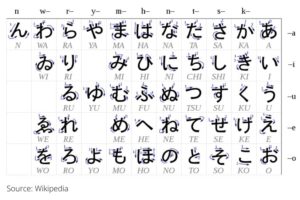The Japanese language, some people say that it’s like a sport. To be so good at it, you would need a lot of practice, discipline, dedication, and coaching. Unlike other languages like English and Spanish, wherein learning to speak and not read or write in the language is just fine.
But for Japanese, it requires you to learn how to read and write, to speak and understand. If that scares you, well don’t fret. Here are five tips to help you become more fluent in Japanese.
Learn the basics
Start with hiragana and katakana, the two basic Japanese writing systems. Familiarize yourself with basic Japanese grammar and sentence structures.
Learn vocabulary
So, that basically means, learn the words in Kanji and in Hiragana—that includes learning the characters. You don’t have to memorize all of them all at once because there’s more than a thousand of them.
Learning about 10 a day would be less stressful, and hearing and seeing those words and characters every day would familiarize you till it becomes normal.
Use Language Apps and Online Resources

Utilize language learning apps like Duolingo, Memrise, Busuu or Cakap. Cakap particularly provides some online classes for learning Japanese with professional mentors. There are three categories you can choose: private, semi-private and club.
Discover Your Japanese Proficiency! Take Our Placement Test Now!
Get with the grammar
Now, the gameplay is the grammar. The words in Japanese are usually ordered: Subject + Object + Verb instead of the normal English word order: Subject + Verb + Object. It’s a bit weird, I know. But if you get used to it, you’ll be able to use all that vocabulary you memorized and form sentences.
Practice with the coach

It’s difficult to find a native speaker of Japanese outside of Japan, so “THANK YOU, INTERNET!” Now, you don’t have to travel to Japan just to learn Japanese. Instead, you can apply for online Japanese classes in CAKAP and the like.
Here, you’ve got your own private coach helping you practice your Japanese and correcting your errors without you worrying about getting embarrassed or wasting time commuting. It’s the most cost-effective and convenient way to practice your Japanese.
With these five tips, you’ll soon be able to get your game on!












